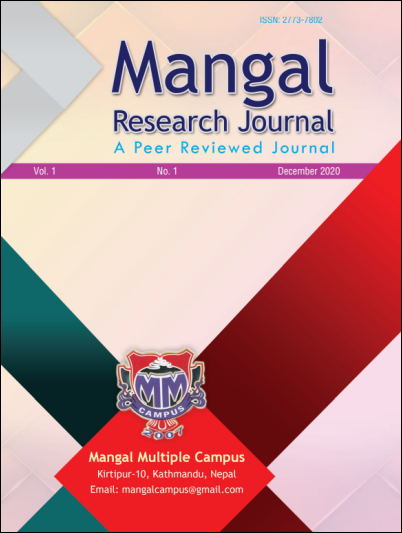Teachers' Job Satisfaction of Government Schools of Kathmandu District
DOI:
https://doi.org/10.3126/mrj.v1i01.51923Keywords:
Teachers' job satisfaction, age, gender, academic qualification, working experienceAbstract
Given that teachers are considered as human sources of shortage internationally, teacher job satisfaction merits higher attention globally. This research is aimed to examine teachers’ job satisfaction and its relationship with age, gender, qualification, ethnicity and working experience. A quantitative research design was used. The sample for study comprised 150 teachers from community-based schools of the Kathmandu district and the research design used to collect the required data is purposive sampling. The structured demographic data along with Teachers’ Job Satisfaction were administered. The obtained data were analyzed using chi square test, oneway ANOVA test and Pearson correlation. The current study found that 82% teachers have high level of job satisfaction. The average score of teachers’ job satisfaction was 69.28 and standard deviation was 8.440. The findings further established the significantly positive relationship between age and job satisfaction. As the age increases, the job satisfaction also increases. Gender is also found as an influencing factor in teachers’ job satisfaction. Male teachers are found more satisfied than their female counterparts significantly. Although there were no significant differences, teachers from Newar ethnic group were more satisfied than teachers from other ethnic groups. Regarding the academic qualification, negatively correlated is found in the present study. Higher academic qualified teachers had significantly low level of job satisfaction. Moreover, the years that teachers spend on teaching greatly affect their job satisfaction. It is found that experienced teachers have significantly higher job satisfaction than their less experienced counterparts.




